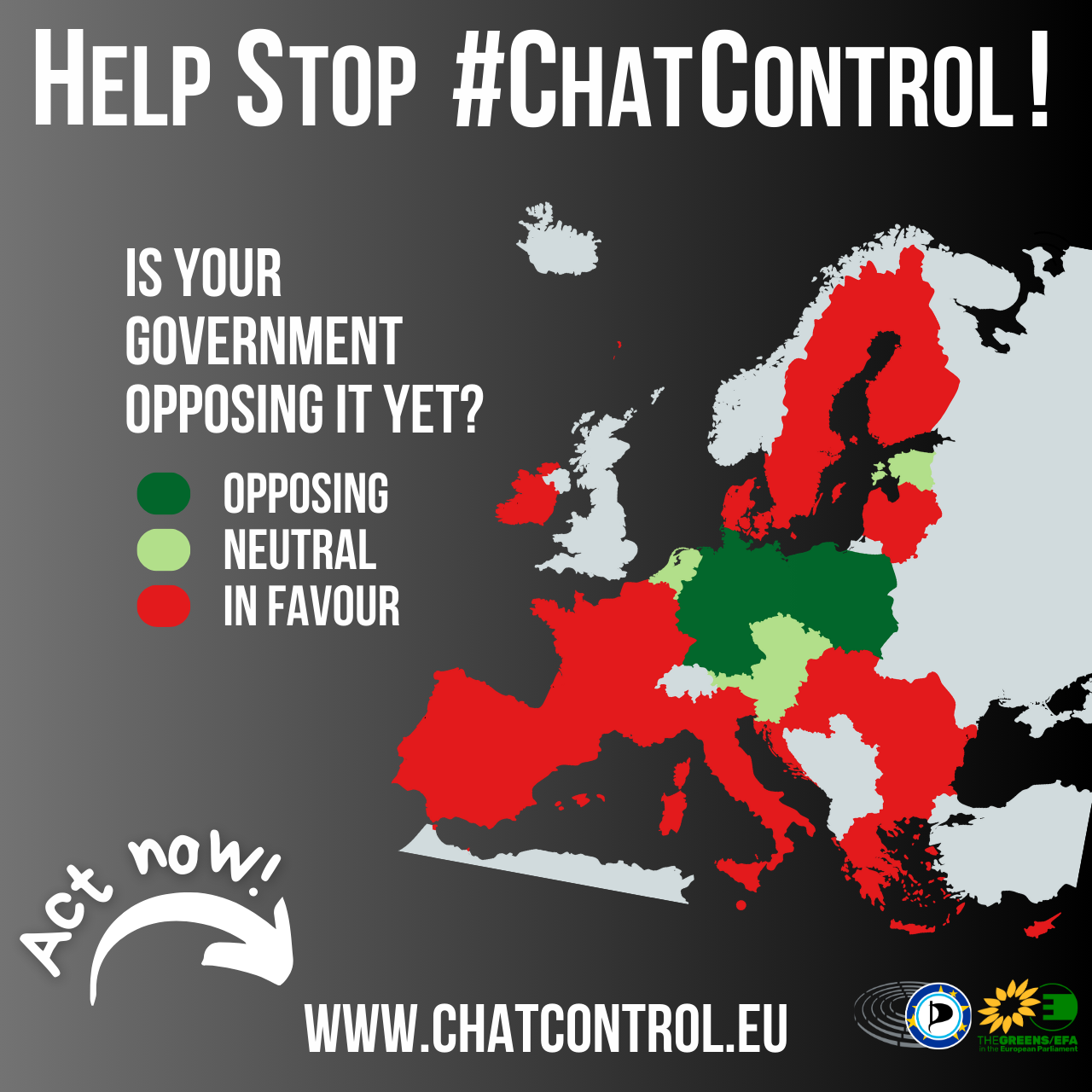European Parliament to extend voluntary chat control with some modifications
Now that the EU plans for mandatory screening of private communications and the removal of secure encryption (chat control 2.0) have been put on ice for the time being due to a lack of majority in the EU Council, the European Parliament‘s rapporteur Birgit Sippel (S&D) in today‘s draft report proposes to approve the Commission’s proposal to extend the existing voluntary chat control regime with some changes. So far, the EU‘s regulation greenlighting the indiscriminate scanning of direct messages for suspected content on Instagram Messenger, Facebook Messenger, GMail and XBox is set to expire on 3 August 2024. Pirate Party Member of the European Parliament and most prominent opponent of chat control Patrick Breyer, who is also his group’s lead negotiator, comments:
“Instead of taking up the EU Parliament’s new approach for more effective and court-proof child protection without chat control mass surveillance, EU Commissioner ‘Big Sister’ Johansson is incorrigibly insisting in the destruction of digital privacy of correspondence, playing for time and hoping to manipulate critical EU states into agreeing by running infamous campaigns and spreading misinformation. This approach has gotten us into deadlock politically, failing children and abuse victims alike. We should clearly reject this strategy and insist on finding better solutions than mass surveillance, as proposed by the European Parliament last year.”
According to her draft report, Sippel wants to extend voluntary chat monitoring by one instead of two years as proposed by the Commission or three years as requested by the Council. She wants to phase out the automated searching of chat texts for grooming-related keywords – although this is hardly used anyway and accounts for 0.2% of reports only.
Breyer sharply criticises the instrument of voluntary chat control: “The voluntary mass surveillance of our private communication by US services such as Meta, Google or Microsoft does not make any significant contribution to saving abused children or convicting abusers, but conversely criminalises thousands of minors, overburdens law enforcement officers and opens the door to arbitrary private justice by internet companies. If, according to Johansson’s own statements, only one in four flagged converations are relevant to the police at all, this means 75,000 leaked intimate beach photos and nude pictures for Germany every year, which are not safe with unknown moderators abroad and do not belong in their hands.”
“The regulation on voluntary chat control is both unnecessary and contrary to fundamental rights: social networks as hosting services do not need a regulation to check public posts. The same applies to suspicious activity reports by users. And the error-prone automated reports from the screening of private communications by Zuckerberg’s Meta Group, which account for 80% of chat messages, will be eliminated anyway by the announced introduction of end-to-end encryption. The legal opinion of a former ECJ judge proves that voluntary chat monitoring as a suspicionless and comprehensive surveillance measure is contrary to fundamental rights. A victim of abuse and I are taking legal action against this and the Ministry of Digital Affairs has confirmed that the exemption regulation does not allow for voluntary chat monitoring in Germany at all.”
The Committee on Home Affairs (LIBE) is expected to approve the extension of voluntary chat controls on 29 January. The Parliament wants to reach an agreement with the Council in the second week of February, and the extension should be approved shortly afterwards.
Meanwhile, the EU interior ministers are to vote again in March on the introduction of mandatory chat control 2.0 for all providers, according to the Belgian Presidency‘s planning.

